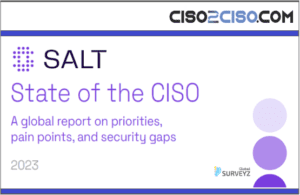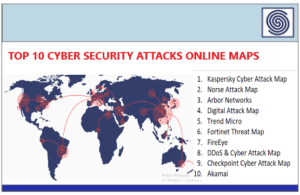Source: www.lastwatchdog.com – Author: bacohido

By Ronin Ashford
Over time, Bitcoin has become the most widely used cryptocurrency in the world. Strong security measures become increasingly important as more people use this digital currency.
Related: Currency exchange security issues
 For managing and keeping your Bitcoin assets, you must need a bitcoin wallet, which is a digital version of a conventional wallet. The protection of your priceless digital assets will be guaranteed by this article’s discussion of the best techniques for protecting your Bitcoin wallet.Bu
For managing and keeping your Bitcoin assets, you must need a bitcoin wallet, which is a digital version of a conventional wallet. The protection of your priceless digital assets will be guaranteed by this article’s discussion of the best techniques for protecting your Bitcoin wallet.Bu
A Bitcoin wallet is a piece of software that enables users to transmit, receive, and store bitcoins securely. While it performs similarly to a regular wallet, it stores digital assets in the form of cryptographic keys rather than actual cash or credit cards. These wallets are available in a variety of formats, including hardware wallets, online wallets, mobile wallets, and desktop wallets. Users can select depending on their unique needs since each type offers a varied ratio of ease to security.
Select a reliable wallet. The first step to protecting your digital assets is choosing a trustworthy Bitcoin wallet. It’s critical to select wallets with a solid track record and reputation in the bitcoin industry. Consider things like security features, user-friendliness, and community reviews when you compare various wallet solutions.
Use strong passwords, 2FA. The security of your Bitcoin wallet is mostly dependent on the strength of your passwords. Use uppercase, lowercase, digits, special characters, and a combination of them to create strong, one-of-a-kind passwords. Keep your name and birthday away from utilizing information that might be easily guessed. Also, whenever it is possible, activate two-factor authentication (2FA). By requiring a verification code in addition to your password, 2FA adds an extra layer of protection and drastically reduces the possibility of illegal access to your wallet.
Update frequently. Bitcoin wallet providers are always making software improvements to address possible security flaws. It’s critical to maintain your wallet software updated in order to stay one step ahead of criminal actors. Patches for security holes are frequently included in wallet upgrades, ensuring that your wallet is protected against new threats. To keep secure, set up automatic updates whenever feasible or often check for new software versions.
Backup, backup, backup. To guard against data loss, it’s crucial to regularly create backups of your Bitcoin wallet. Wallet backups provide a safety net in the event that your device breaks down, is misplaced, or is stolen. Backups should be kept safely in several places, such as encrypted cloud storage or external hard drives. Test the restoration procedure as well to make sure your backups are operational and available when needed.
Secure your network, device. It’s critical to protect the device you use to access your Bitcoin wallet. To avoid potential vulnerabilities, keep your operating system, antivirus software, and other security tools up to date. Refrain from installing illegal or dubious software, and only download wallets from reliable sources. Be careful while connecting to public Wi-Fi networks as well, as they may not be safe. A virtual private network (VPN) can offer an additional layer of encryption and security.
Use multisignature wallets. Multisig wallets, sometimes referred to as multi sigs, provide better protection for your Bitcoin holdings. Transactions in this kind of wallet must have approval from numerous cryptographic signatures, lowering the possibility of unwanted access. You may share keys across several devices or people using multisig wallets, adding an extra layer of security against key loss or theft.
Be wary of fraud. As the use of Bitcoin has grown, so have the number of phishing and malware attempts that prey on naïve users. Use caution while downloading files or clicking on websites connected to your Bitcoin wallet. Be wary of dubious emails, texts, or websites that ask for your wallet credentials in an effort to deceive you. Before acting, make sure the source is legitimate to avoid falling for con artists.
In conclusion, protecting your digital assets in an increasingly linked world requires you to secure your Bitcoin wallet. You can greatly improve the security of your Bitcoin holdings by adhering to these best practices, such as choosing a trustworthy wallet, implementing strong passwords and 2FA, regularly updating your software, backing up your wallet, securing your device and network, using multi signature wallets, and being watchful against phishing and malware attacks.
It’s crucial to keep up with the most recent security procedures in the constantly changing field of cybersecurity and to adjust as necessary. You may have peace of mind and confidently traverse the world of cryptocurrencies while securing your priceless digital assets by prioritizing the security of your Bitcoin wallet, periodically educating yourself on emerging dangers, and adhering to suggestions from reliable sources.
About the essayist: Ronin Ashford is a passionate tech enthusiast and a dedicated cryptocurrency investor. With a firm belief in the potential of blockchain technology, he is determined to contribute to the transformation of the payments industry landscape.
September 6th, 2023 | For consumers | For technologists | Guest Blog Post | Top Stories
Original Post URL: https://www.lastwatchdog.com/guest-essay-securing-your-crypto-currency-best-practices-for-bitcoin-wallet-security/
Category & Tags: For consumers,For technologists,Guest Blog Post,Top Stories – For consumers,For technologists,Guest Blog Post,Top Stories




















































